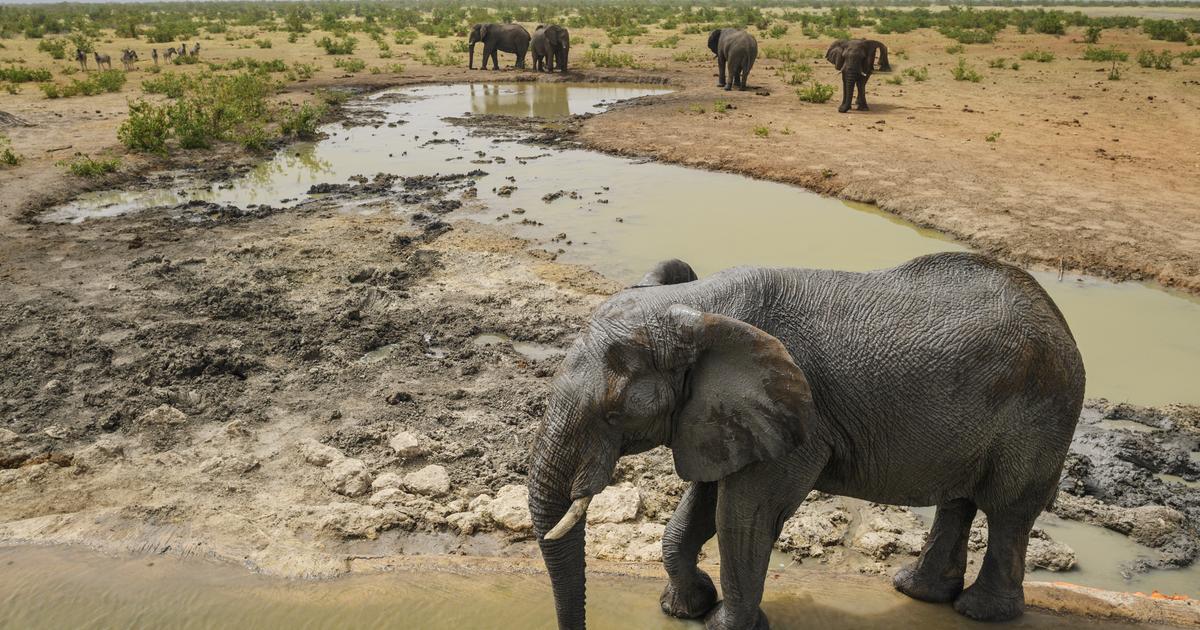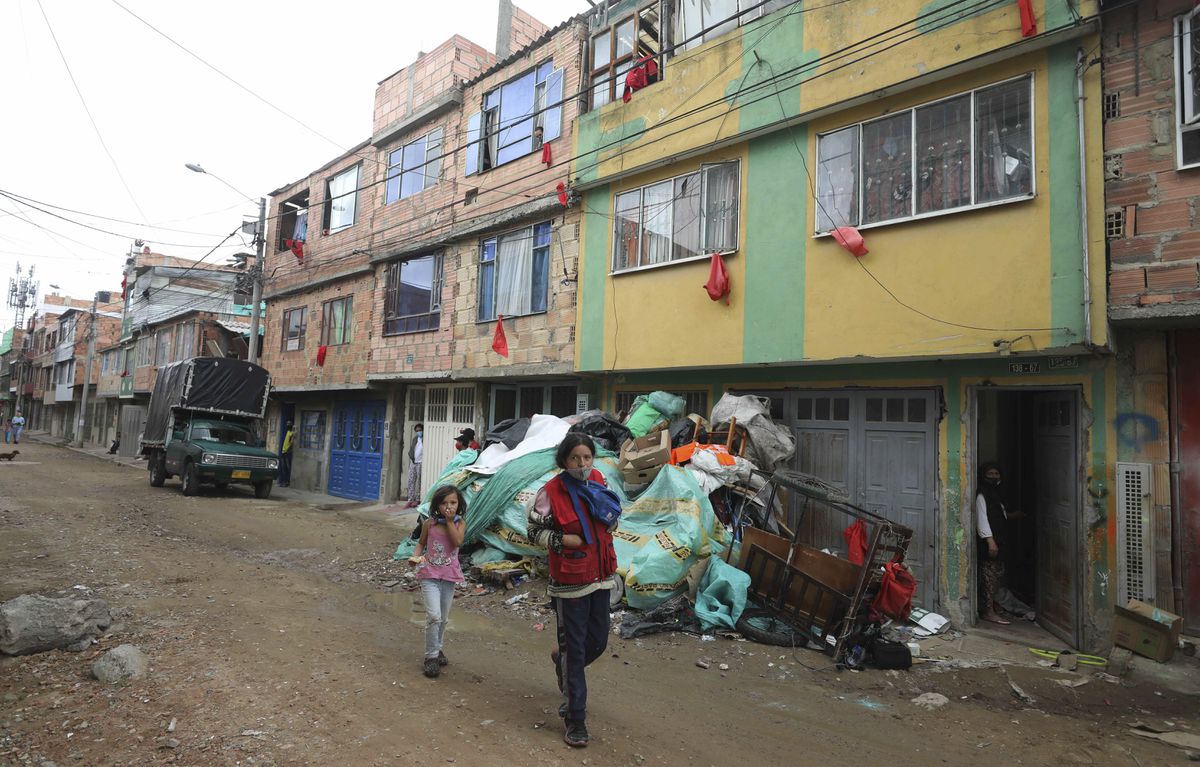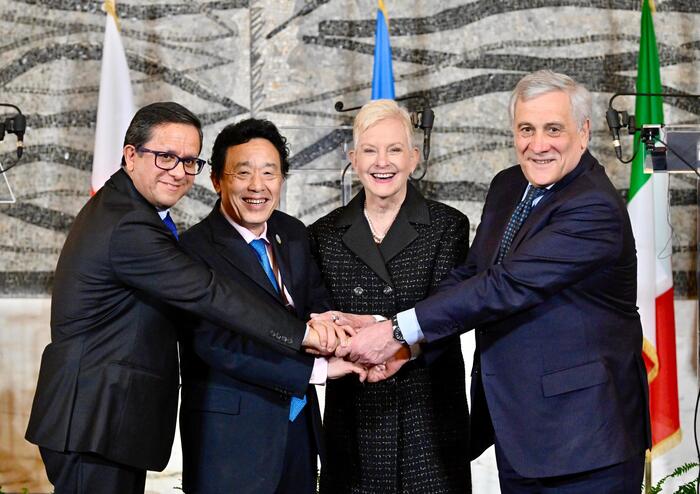If the daily weather forecast announces rain, anyone can take their umbrella to open it as soon as the first drops fall.
It is the logic of forecasting to avoid ending up soaked when the downpour falls.
That same logic is what the International Food Policy Research Institute (IFPRI) asks to apply in humanitarian crises that put the daily bread of the world population at risk.
It does so in its recently published annual report.
With this approach, the United Nations Food Agency (FAO) announced this April that it is already preparing an anticipated response to the food emergency that its experts predict will cause the arrival of El Niño, scheduled for June.
FAO already knows that the previous occurrence of El Niño, in 2015 and 2016, affected more than 60 million people in about 23 countries.
And the forecasts announce that this year it will return.
"Early warnings mean we have to take early action, and we will support our members in these efforts, as resources allow," said Rein Paulsen, head of FAO's Office of Emergencies and Resilience, in a statement. release.
Specifically, FAO promotes the creation of community seed stores, the evaluation of strategic food reserves and the reinforcement of animal health surveillance campaigns.
El Niño of 2015 and 2016 affected more than 60 million people in nearly 23 countries.
This 2023, it is expected that this cyclical meteorological phenomenon will return
The agency's experts are particularly concerned about southern Africa, Central America and the Caribbean and parts of Asia, as several countries in these regions already experience high levels of acute food insecurity.
In addition, some agricultural campaigns are at risk, due to the drought or the floods and storms caused by El Niño.
In a global context in which the number of hungry people has reached record figures -828 million people in 2021, 46 million more than in 2020, according to the latest data from the FAO-, and in which 205 million in 19 territories will need help urgent to eat in 2023, anticipating the probability of catastrophe is saving lives.
The increase in undernourished is due, according to the IFPRI authors, "to conflicts, the pandemic,
weather-related natural disasters and economic slowdowns in many countries.”
But this trend can be reversed, they add, if the international community anticipates its response to crises thanks to already available data and estimates.
This could prevent the worst effects and act faster when they occur.
This is what the FAO is doing in the case of El Niño: it has developed early action protocols for drought in Burkina Faso, Chad, Niger, southern Madagascar, Malawi, Zimbabwe, the Philippines, Pakistan and in Central America, and says be prepared to “act promptly, in coordination with governments and partners, if forecasts materialize”.
For areas that will experience drought, it specifies the need to distribute agricultural tools and seeds of water-tolerant crop varieties now before planting seasons;
They also distribute feed and vaccines for livestock, rehabilitate irrigation outlets, canals and other water points, while training communities on water collection techniques.
For areas that will experience flooding, the agency recommends and supports initiatives to establish food storage and provision sites, for example, airtight bags to reduce post-harvest losses.
It also tracks cyclones, to activate humanitarian aid – such as cash transfers to those affected and vulnerable groups – before they make landfall and wreak havoc.
Or previously establish evacuation routes for livestock, livelihoods for part of the population.
And, importantly, harvest crops in advance when floods are forecast.
Crises, the new normal
“Crises, shocks and volatility are no longer exceptions and may become the new normal,” said Johan Swinnen, IFPRI Director General, at the launch of the report Rethinking Responses to Food
Crises
.
“Hence, we need to better predict and prepare, put in place effective and accountable governance and institutions, and invest to build resilience to future crises.
Although an approach to the humanitarian-development-peace nexus has been debated for years, this report provides a solid political foundation for further progress,” he says.
“Adversities are normal, but it is not fair that these impacts cause massive and long-term suffering.
We need more knowledge about the factors that make people vulnerable, like a community thermometer just like we use to detect diseases in the human body,” said Ousmane Badiane, CEO and Acting CEO of Akademiya2063.
This non-profit entity, based in Kigali, provides evidence to African governments for the development of public policies aimed at meeting the objectives of Agenda 2063 of the African Union.
The IFPRI report underlines that, as a result of the succession and overlapping of different emergencies, the population of the poorest countries do not have sufficient resources to cushion the blow and guarantee themselves, at least, enough food.
30% of those who live in these contexts of protracted crises suffer extreme poverty (with less than 1.9 dollars a day).
Neither do their rulers have a sufficient budget to activate measures and subsidies that remove their citizens from this vulnerability.
As an example, in a country like Egypt (which is not one of the least developed on the planet) 48% of households declare that they eat less food to reduce expenses, and 75% assure that they consume less chicken and eggs, essential sources of protein .
In addition to making your diet worse, or even lacking it,
More information
Hunger does not stop growing: 828 million people did not have enough food in 2021
“The prospects for 2023 remain worrying.
(...) These indices could reach critical levels if the world production of basic foodstuffs were to decrease due to the large reduction of the harvests in the Ukraine, to the expected dry conditions in the southern hemisphere, and the fall in the production of cereals for a lower application of fertilizers due to the relatively high prices”, they warn from IFPRI.
The El Niño phenomenon has added to this fatal equation.
IFPRI's recommendations revolve around three pillars: predicting and preparing before crises, creating stronger mechanisms that make the population able to withstand the impact when one occurs, and placing anticipation and response measures at the center of women, migrants and other vulnerable groups.
Shocks are normal, but it is not fair that these impacts cause massive and long-term suffering
Ousmane Badiane, Akademiya2063
Regarding the first leg, there are already international mechanisms that monitor food insecurity on the planet, as well as trends in agri-food markets.
This is what the Global Information and Early Warning System on Food and Agriculture of the Division of Markets and Trade of FAO does.
"This information is very useful, but it has to be improved to make the answers more precise," requests IFPRI.
Friederike Greb, an economist at the World Food Program, stresses that when talking about anticipating shocks, the key is to detect potential risks.
“We need real-time monitoring of food prices, how they affect each context and what are the local vulnerabilities that increase or mitigate the impact,” she explains.
Armed with this information, you can prepare what IFPRI researcher Sikandra Kurdi calls “an anticipatory response”: allocating resources to potential crises when the first warning signs appear and before they erupt.
In this way, she assures, humanitarian assistance when the storm breaks will require less investment and will reduce human suffering.
With the traditional response, more funds are needed each year than the previous one because crises are not prevented or avoided.
In fact, they increase.
Thus, requests for humanitarian aid in 2022 reached a record figure of 41,000 million dollars (more than 37,200 million euros) to attend to 183 million people in dire need, according to the UN Office for Humanitarian Affairs.
An amount that the international community could not cover.
Equality for women in agri-food systems could increase global GDP by $1 trillion
FAO report
Regarding the second of the recommendations, Katrina Kosec, a researcher and one of the authors of the IFPRI report, specifies: "Going forward, governments should not only aspire to better predict, prevent and mitigate crises, but also to governing for resilience and equity”.
This is, so that the communities are better prepared, stronger, less poor, less vulnerable.
The report advises governments to maintain a business environment that encourages flexibility and technical and financial innovation, as well as the implementation of “flexible, crisis-sensitive and carefully targeted social protection systems”, such as those developed during the pandemic.
Finally, the authors highlight the special attention that two vulnerable groups should receive: women and migrants.
The former suffer crises “disproportionately”, they recall.
Emergency interventions such as cash transfers, the creation of organized groups in civil society or training have to be “explicitly” aimed at improving gender equality.
This would also generate enormous benefits for humanity, according to another report published by the FAO.
"Equality for women in agri-food systems could increase global GDP by one trillion dollars and end food insecurity for 45 million people," this document states.
You can follow PLANETA FUTURO on
,
and
, and subscribe
here
to our 'newsletter'
.



/cloudfront-eu-central-1.images.arcpublishing.com/prisa/Q3R3DI62AJHR7AGTRNQPF2AHCI.jpg)










